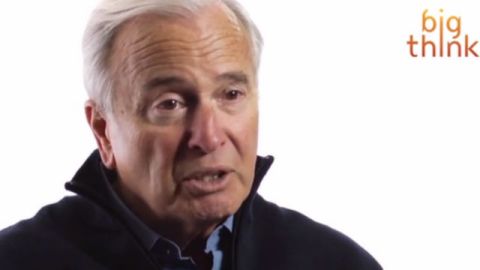The Risk Behind Netflix’s Original Programming Leap

Ken Auletta, media critic for The New Yorker, told a wonderful tale that almost seems mythical. Netflix not only gave hit political drama “House of Cards” a green light without testing a pilot, it signed the series for two seasons. This, of course, goes against the norm of focus-group frantic Hollywood and its frenzied pilot season. Netflix took the risk and, as we all know, was rewarded.
Netflix subscribers turned out to be a built-in focus group, allowing the company to make a calculated risk. “What Netflix actually did before Kevin Spacey and the producers came – and David Fincher came to them – they looked up and they saw Kevin Spacey movies did very well on Netflix. David Fincher movies that he directed did very well. Political dramas did very well on Netflix. They had a built in audience for all of those three,” Auletta explains. It also helped that “House of Cards” was based on a hit British series. “It was not a sure bet – nothing ever is a sure bet,” he says.
Founded by engineer Reed Hastings, Netflix is more than a Blockbuster-killer that delivers entertainment to your home. It’s a big data company that knows what audiences like by listening to that data. “So they can dice and slice all of it up and basically present a prediction as to who the audience is and how big that audience will be – or might be,” says Auletta. “And that becomes a great advantage, that data.”
“House of Cards” went on to win Emmys and a Golden Globe for Robin Wright, and launched Netflix as a critically acclaimed production powerhouse. Netflix’s data-driven gamble also exploded the number of subscribers. “Netflix now has 43 or so million subscribers around the world. And that’s grown exponentially since they put on original programming like ‘House of Cards,’” says Auletta.
Watch a clip from Big Think‘s interview with Ken Auletta:





